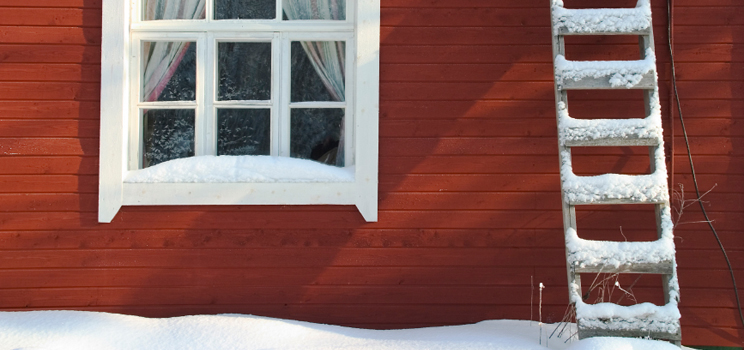Winter temperatures and heavy snowfall are just around the corner for many parts of the country and it's never too early to prepare. Benefits.gov wants to help you and your family to stay ahead of the forecast by keeping warm and saving both money and energy this winter season.
Tips to Save Energy and Money
To help you prepare, here are a few do-it-yourself tips proven to save energy, and money, at home:
- Weather-strip air leaks. This means sealing windows, skylights and doors with caulking from your local hardware store.
- Seal air duct leaks. Air ducts are one of the most important systems in your home. If the ducts are poorly sealed or insulated, it's likely they'll contribute to higher energy bills - read the Department of Energy’s (DOE) tips for sealing your air ducts.
- Remove your window AC. By removing the unit and sealing the window, you will save energy while blocking those freezing drafts.
- Install a programmable thermostat. This device enables you to set the proper temperatures when you're home and away. Turning your thermostat back 10-15 degrees for 8 hours can save 5-15 percent a year on your heating bill, according to the DOE.
- Check your heating system regularly. Proper furnace maintenance saves money, conserves energy, and prevents costly repairs in the future. Also, check and clean your heating system filters regularly to maintain proper airflow.
Check out Ready.gov for more tips on preparing your family and home for extreme cold and winter storms. Also be sure to check out the following benefit programs that could help you save.
Energy Efficient Mortgage Insurance
If you want to do more extensive work on your home to save energy, you might be eligible for the U.S. Department of Housing and Urban Development's (HUD) Energy Efficient Mortgage Insurance. HUD offers this program to help home buyers or homeowners save money on their utility bills. The program assists people in getting loans to cover the cost of adding energy saving features to new or existing housing as part of a Federal Housing Administration insured home purchase or refinancing mortgage.
Weatherization Assistance Program for Low-Income Persons
You can also help to make your home as energy efficient as possible with the DOE’s Weatherization Assistance Program for Low-Income Persons (WAP). WAP enables low-income families to reduce their energy bills by making their homes more energy efficient. Funds are used to improve the energy performance of dwellings families in need, using the most advanced technologies and testing procedures available in the housing industry resulting in lower energy bills in the future.
Low-Income Home Energy Assistance Program
If you still need some extra assistance with payments on your heating bills, the U.S. Department of Health and Human Services (HHS) offers the Low Income Home Energy Assistance Program (LIHEAP) to help families pay for increasing energy and fuel costs. Each state offers their own version of LIHEAP, so you should find out whether you are eligible to receive LIHEAP benefits by contacting your state or tribal LIHEAP office. Information about how to contact each office can be obtained on the HHS website.
Need additional resources?
Be sure to read our article Stay Warm and Save Money This Winter with Tips from the Department of Energy.
When temperatures drop down, energy bills go up. Stay warm and save money this winter by making your home more energy efficient! To find out if you might be eligible for these, or any of the more than 1,000 other benefits on our site, take the Benefit Finder questionnaire.
